“One day, the king realized that the gold and silver in his treasury was running low. He became distressed and asked his minister for advice. The minister said without hesitation, “We will impose a new tax.” The king nodded in agreement and instructed his minister to implement his suggestion. Tax collectors began touring cities and villages, accompanied by police officers, forcing people to pay the new tax. Those who refused to pay were humiliated, beaten, and imprisoned. One day, the people’s patience ran out, and their anger exploded. They marched in a huge crowd toward the royal palace, their voices rising loudly and indignantly at the injustice. When the king learned of what had happened, he allowed a delegation representing the demonstrators to meet with him. He listened attentively to the moving pamphlet the delegation members had to say about hunger, prisons, taxes, and the unjust minister. He expressed his astonishment and disapproval at what he heard, and said in a trembling, ashamed voice, “How can I ask my Lord on the Day of Judgment? Can I oppress my subjects without even knowing it? I, who dedicated my life to serving the needy, the poor, the orphans, and the widows?!” He stood up and announced in a stern voice the dismissal of the minister from his position and the confiscation of his palaces and wealth as punishment for his injustice and out of respect for the will of the people. The delegation left the royal palace and informed the disaffected people of what had happened. They shouted joyfully, thanking the king for his support of justice and righteousness. However, the next day, the tax collectors continued their tour of houses and shops.
With this vision, Zakaria Tamer’s text opens up to scenes in which characters dressed in symbolic garb freely express social and economic concerns and the setbacks associated with a political reality that has shattered the constraints that could have strained the conscience of the ruler, reminding him of his limits and warning him against the transgressions that are killing his people.
Tigers on the Tenth Day
د.ا5.00
A collection of symbolic stories that addresses oppression and freedom through a sarcastic style and intense language.
Available on backorder
| Categories: | Literature, stories, Literary criticism, satirical literature |
|---|---|
| Tags: | literature, politics, stories, thought |
| Author | |
|---|---|
| Year | |
| Publisher | Riyadh Al-Rayyes Books and Publishing |
You may also like…
-
The Nightingale’s Prayer
د.ا5.00The novel tells a story of revenge that turns into love, revealing a woman’s struggle with social injustice in a conservative rural environment.
-
Spring in Ashes
د.ا5.00In “Spring in Ashes,” Zakaria Tamer presents satirical short stories that reveal the contradictions of Arab reality and the cruelty of power.
-
I Saw in What the Sleeper Sees
د.ا9.00This book contains a collection of short dreams that blend reality and symbolism, reflecting his reflections on life, politics, and existence.
-
Sea Prayer
د.ا12.00Sea Prayer is a poignant and poetic reflection on the suffering of refugees, told as a letter from a Syrian father to his lost child.
Related products
-
The hat and the prophet
د.ا2.13Ghassan Kanafani is a Palestinian novelist, storyteller, and journalist, and is considered one of the most famous Arab writers and journalists in the twentieth century. His literary works, including novels and short stories, were deeply rooted in Arab and Palestinian culture
د.ا3.55 -
One Hundred Years of Solitude
د.ا12.07One Hundred Years of Solitude is a 1967 novel by Colombian author Gabriel García Márquez that tells the multi-generational story of the Buendía family, whose patriarch, José Arcadio Buendía, founded the fictitious town of Macondo. The novel is often cited as one of the supreme achievements in world literature.
د.ا17.75 -
Men in the sun
د.ا2.13Ghassan Kanafani is a Palestinian novelist, storyteller, and journalist, and is considered one of the most famous Arab writers and journalists in the twentieth century. His literary works, including novels and short stories, were deeply rooted in Arab and Palestinian culture
د.ا3.55 -
Revolution of 36-39 in Palestine
د.ا2.13Until his early death, Ghassan Kanafani published eighteen books, and wrote hundreds of articles and studies on culture, politics, and the struggle of the Palestinian people. Following his assassination, all of his books were republished in Arabic, in several editions
د.ا3.55 -
Land of sad oranges
د.ا2.13Ghassan Kanafani is a Palestinian novelist, storyteller, and journalist, and is considered one of the most famous Arab writers and journalists in the twentieth century. His literary works, including novels and short stories, were deeply rooted in Arab and Palestinian culture
د.ا3.55 -
My journey from doubt to faith
د.ا2.13I refused to worship God because I was immersed in worshipping myself and admired the flash of light that began to flash in my mind with the opening of consciousness and the beginning of the awakening from the cradle of childhood.
This psychological state was behind the controversial scene that recurs every day. I also missed the origins of logic and I am dealing with logic and I did not realize that I am contradicting myself as I recognize the Creator and then say who created the Creator and make him a creature at the time when I call him a creator, which is sophistry itself.
Moreover, to say a first cause of existence requires that this cause must exist in itself and not dependent or need others to exist. If a cause needs a cause, this makes it one of the causal links and does not make it a first cause.د.ا3.55 -
Stolen shirt
د.ا2.13Ghassan Kanafani is a Palestinian novelist, storyteller, and journalist, and is considered one of the most famous Arab writers and journalists in the twentieth century. His literary works, including novels and short stories, were deeply rooted in Arab and Palestinian culture
د.ا3.55 -
Lover
د.ا2.13Ghassan Kanafani is a Palestinian novelist, storyteller, and journalist, and is considered one of the most famous Arab writers and journalists in the twentieth century. His literary works, including novels and short stories, were deeply rooted in Arab and Palestinian culture
د.ا3.55



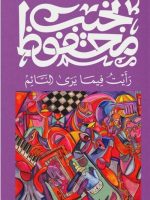
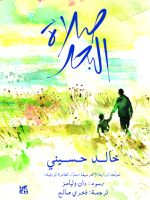

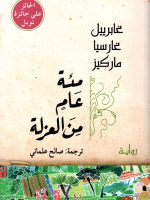



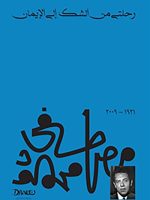
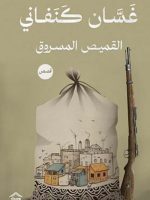

Be the first to review “Tigers on the Tenth Day”